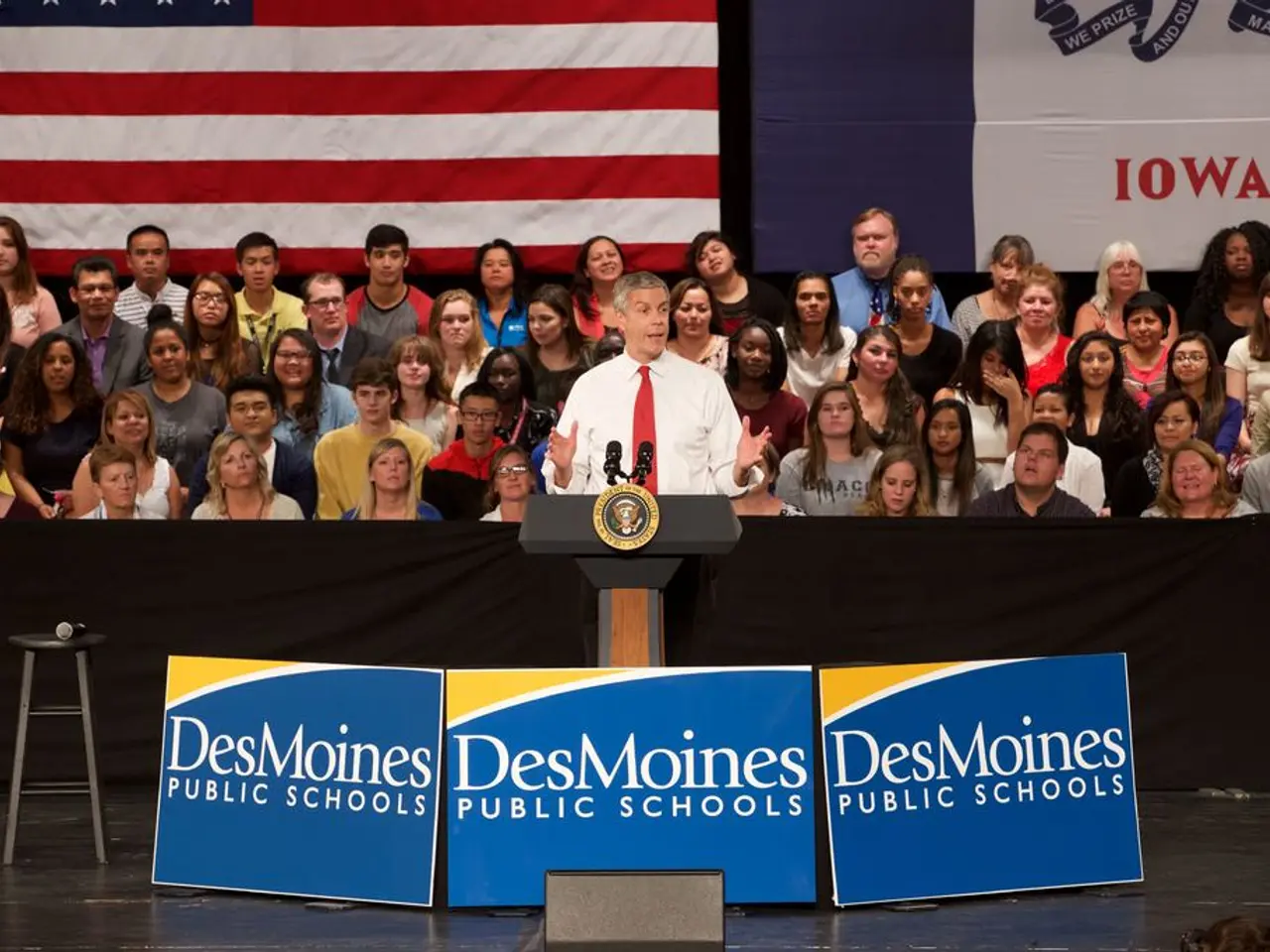Lawyers' Intense Legal Battle
Germany's 2025 Federal Election: Merz Emerges Victorious Over Scholz
The 2025 German federal election saw a dramatic shift in power, with Friedrich Merz securing the chancellorship against Olaf Scholz. The election, held in February 2025, marked a significant change in the political landscape of Germany.
The outcome of the election was largely due to voter dissatisfaction with Olaf Scholz's Social Democratic Party (SPD), which lost significant support, dropping to third place with its worst result since 1887 (16.4%). The "traffic light coalition" government under Scholz had collapsed, triggering the early election. Merz's campaign successfully positioned him as a candidate who would reinvigorate Germany’s economy, security, and international standing, contrasting with Scholz’s center-left leadership considered lackluster by many voters.
Merz emphasized strengthening Germany's military and economic policies and took a hard stance on Russia, gaining support amid European concerns on security. His promises to boost Germany’s conventional army and his decisive image were seen as key factors in swaying public opinion. Despite winning, his party lost absolute majority, requiring coalition negotiations with the SPD to form a government.
The debate between Merz and Scholz, held prior to the election, was a clash of political stances rather than a traditional rhetorical duel. Merz was perceived as more combative and clear, while Scholz remained in a self-imposed defensive stance. His lack of communication in the past years contributed to his lack of clarity in the debate. On the other hand, Merz was well-prepared, using compelling stories, colorful metaphors, and apt images.
The debate did not generate sympathy points for either candidate, with voters seeking leadership. Merz's aggressive approach during the debate may have appealed to voters seeking a strong leader. Olaf Scholz thanked Friedrich Merz and politely asked for the floor during the debate, which some viewers felt was not effective in a competitive setting.
The debate offered undecided voters genuine and democratic alternatives amidst current political debates. However, neither candidate was able to win over the absolute supporters of the other during the debate. The outcome of the debate was not immediately clear-cut, leaving viewers uncertain about who won.
In retrospect, the debate was reminiscent of two lawyers re-taking their state exam, leaving legal experts pleased but laypeople bewildered. Olaf Scholz's rhetoric was perceived as too soft, and he seemed reluctant to engage fully. Friedrich Merz's consistency and familiarity to some viewers may have given him an advantage in the debate.
References:
[1] BBC News. (2025, February 15). Friedrich Merz wins German election to become Chancellor. [online] Available at: https://www.bbc.co.uk/news/world-europe-56146765
[2] Deutsche Welle. (2025, February 15). Merz wins German election: What happens next? [online] Available at: https://www.dw.com/en/merz-wins-german-election-what-happens-next/a-56146892
[3] The Guardian. (2025, February 15). Friedrich Merz wins German election: what happens next? [online] Available at: https://www.theguardian.com/world/2025/feb/15/friedrich-merz-wins-german-election-what-happens-next
- As the German federal election campaign unfolded, concerns over Europe's security and the country's economic stability dominated the general news, with Friedrich Merz highlighting his policy to strengthen military and economic policies in his election rhetoric.
- Despite winning the election, Merz's party failed to secure an absolute majority, indicating potential war-and-conflicts and policy-and-legislation challenges ahead, given the need for coalition negotiations with the Social Democratic Party.
- The crime-and-justice sector was notably absent from the election debates, signifying a gap in the election campaign discourse, with the public seeking more concrete commitments and policies addressing domestic and global issues beyond the economy and security.








